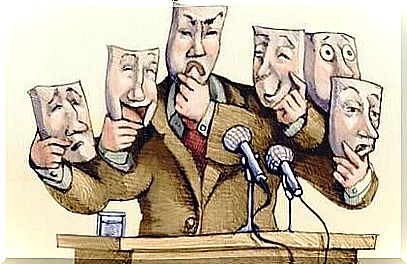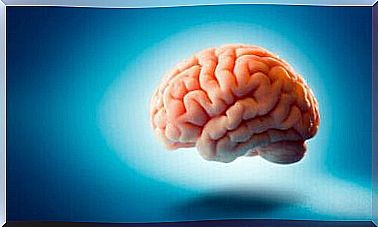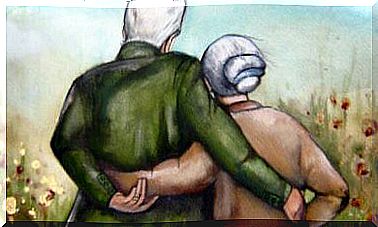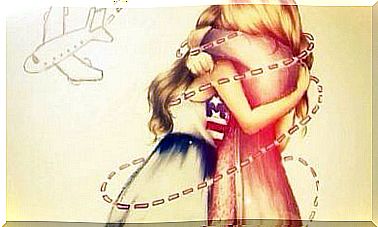Political Stress Syndrome: When Politics No Longer Tells Us Anything

Political stress syndrome is a disease that is beginning to affect more and more people. Uncertainty, apathy towards the political class and its messages, the boredom caused by its internal conflicts and especially the weight of corruption, increasingly destroy the confidence of citizens. These situations are mixed with different negative emotions such as disgust, disappointment, anger, sadness among others.
With the ingenuity that characterized him, Jorge Luis Borges said that politicians should not be public figures. This sentence hides in itself a reality that makes many people wonder. There are politicians who, because of their behavior, their personality and their bad decisions, should not be public figures. They do not lead by example, they are not a source of inspiration and, on top of that, they are not trained to hold power.
What is political stress syndrome?
Today, international political debates revolve around the most complex movements. The boom of extremist sovereignists, independence movements, immigration dramas, corruption, less and less social policies… Thus, studies such as the one published in Cambridge University Press describe this situation as a spiral of mistrust.
Another factor is added to the mistrust of citizens: it is information overload or infobesity . All these dynamics, information, opinions and news are filtered daily with more or less veracity through the media: television, radio, social networks… All of this leads us to experience these situations in two ways. Either we are outraged or we are completely indifferent.
Indignation can lead us to mobilize, to take an active role, to aspire to change. Apathy will have the exact opposite effect on us. It arouses discontent and, very often, the absolute loss of confidence in all political parties or currents. However, all of these experiences start from a specific reality: political stress syndrome.

What is political stress syndrome?
Political stress syndrome does not appear in any clinical textbook. It is a popular term that has appeared recently. For example, an article in Psychology Today analyzes the impact this can have on a child’s mind.
We do not know if this syndrome will be described in the DSM-V (Diagnostic and Statistical Manual of Mental Disorders). What is certain, however, is that this reality is already a source of analysis for political scientists and social psychologists. Moreover, in a way, one can even describe what are the “symptoms” that make up political stress syndrome.
Let’s take a look at it in detail.
The triggers of political stress syndrome
There are many factors that influence the anatomy of political stress syndrome. These in turn will have a greater impact depending on the personality and needs of each. However, we are not mistaken in pointing out the presence of certain situations almost constants that occur daily:
- The feeling that the political class cares less and less about its voters and more and more about its own interests.
- Policies favoring the well-to-do classes.
- The lack of civility in political speeches: there is no real connection with the people.
- The lack of understanding within the political class itself to reach agreements, to reach an understanding that favors the people and even the planet.

Political uncertainty
Today we all go to bed without knowing what will happen tomorrow. We wake up every day with new information on corruption, wiretapping, terminations and new appointments, disagreements, threats, immigrants losing their lives, terrorist attacks etc.
In addition to these facts, there are other factors that citizens are familiar with. He is more worried about social policies, as is the case with tax increases. Current politics plunge people into a state of almost absolute unpredictability.
From indignation to helplessness
This factor is very interesting from a psychological point of view. With each scandal, each corruption revealed, each legislative decision unfavorable to the citizen, it is common that at first glance, we all feel outraged. However, little by little, the day comes when we are no longer surprised by this new discovery , this scandal, this looting in public coffers.
Almost without knowing how, part of the population is helpless. For example, for some time now it has been common to see the President of the European Commission, Jean-Claude Juncker, stumble and act in the most inappropriate scenes.
Our reaction when we see him is to laugh and remember those years when Boris Yeltsin also entertained the tops of the world in his own way. We therefore passively accept inconceivable situations of public figures. The latter, as Borges rightly said, are far from representing us with dignity.
How to deal with political stress syndrome?
It is not a new subject. This type of phenomenon has existed for a long time in certain spheres of the political class. They have been present throughout history and so far it is clear that they will continue to exist for quite some time. However, today there is one element that accentuates the impact; and that invites political stress syndrome.
We are of course referring to the media, information overload, viral information, the opening of television and the fact that these are the same themes that come up every day. So what can we do when faced with a phenomenon that occupies so much space in our daily lives?
- It is very important to never fall into inaction, that one feels helpless.
- As with stress, there is no point in standing still and adopting a passive attitude in the face of stressors.
- This attitude will further intensify the discomfort. The key to everything is to reduce your exposure. We must limit ourselves to looking and reading what is true. We must make sure that we are receiving truthful information and we must never lose our critical thinking.
- That one feels dissatisfied with the current political class is legitimate, respectable and understandable.
- However, if we fall into passivity and helplessness, these situations will become chronic.
Activism, citizen participation in political life, is perhaps one of his most precious rights, if only for whatever it took him to get it . Politicians are our representatives because we have chosen them.
The problem arises when the politician wants to take advantage of his position to deceive the society that has placed him in this privileged place. The good news is that the problem may go away if society banishes those who betrayed it.









